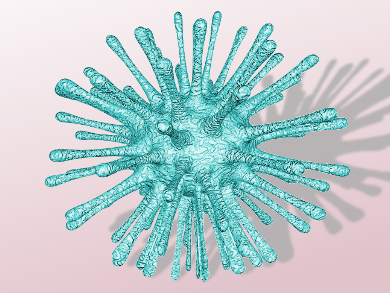Methods to diagnose a virus infection are usually specific for a single virus and need input from a medical professional. Looking for all possible viruses that can infect a human is thus not clinically feasible. Sequencing the DNA in a sample could potentially help to identify all kinds of viruses, but since the host’s genes are prevalent, sensitivity is an issue.
W. Ian Lipkin, Columbia University, New York, USA, and colleagues have developed a virome capture sequencing platform for vertebrate viruses (VirCapSeq-VERT). The system is highly sensitive and contains roughly two million probes covering all known virus families that can infect vertebrates (including humans). The researchers tested the method with a wide range of viruses, such as those responsible for West Nile fever, dengue fever, Ebola, and influenza.
The technique can detect the viruses in clinical samples, such as blood and tissue, with a sensitivity between 100 and 1000 times higher than conventional broadly applicable sequencing methods. In addition, it was able to detect new and mutated viruses if they did not differ from the library by more than about 40 %. The team hopes that this approach will make high-throughput sequencing a useful diagnostic tool, as well as find applications in research.
- Virome Capture Sequencing Enables Sensitive Viral Diagnosis and Comprehensive Virome Analysis,
Thomas Briese, Amit Kapoor, Nischay Mishra, Komal Jain, Arvind Kumar, Omar J. Jabado, W. Ian Lipkin,
mBio 2015, 6, e01491-15.
DOI: 10.1128/mBio.01491-15




